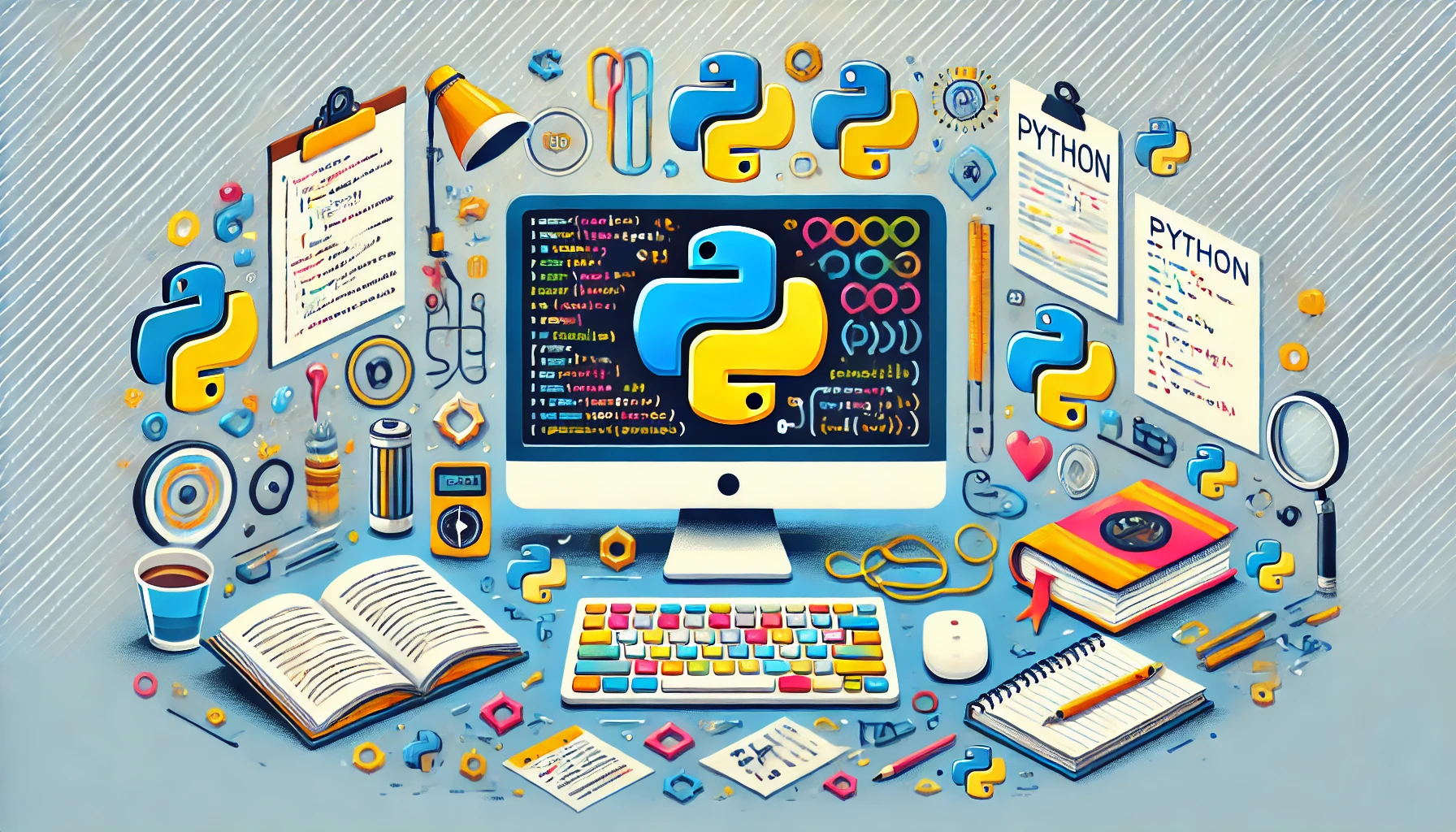Python is one of the most beginner-friendly programming languages, known for its simplicity, versatility, and vast applications across industries like web development, data science, artificial intelligence, and automation. Whether you’re a complete beginner or someone looking to expand your tech skills, learning Python is a valuable investment for the future. And the best part? You can learn it for free!
In this blog post, we’ll guide you through the best ways to learn Python for free, with tips, resources, and a roadmap to help you start your coding journey without breaking the bank.
Why Learn Python?
Before we dive into the resources, let’s briefly cover why Python is such a popular language:
- Beginner-Friendly Syntax: Python’s syntax is clear and easy to read, making it an excellent choice for first-time coders.
- Versatility: Python is used in many fields, from web development and game development to machine learning and data science.
- Vast Community Support: Python has a large and active community, which means plenty of documentation, forums, and tutorials are available to support learners.
- High Demand in the Job Market: Python ranks among the top programming languages sought by employers, offering a great career path.
How to Learn Python for Free
Here’s a step-by-step guide on how you can learn Python from scratch without spending a dime.
1. Start with the Basics: Understanding Python Fundamentals
If you’re completely new to coding, you’ll want to start by grasping the basics of Python. Fortunately, there are several free resources designed to help you learn Python in an interactive, beginner-friendly way.
Recommended Resources:
- Python.org: The official Python website has a detailed beginner’s guide to help you install Python and write your first code.
- Automate the Boring Stuff with Python (Free Book and Course): Available online for free, this book and Udemy course by Al Sweigart teaches Python through real-world examples like automating tasks, working with files, and web scraping. You can start coding right away with practical exercises.
- Google’s Python Class: Google offers a free, well-structured Python course for people with some programming experience but who are new to Python. The course includes written tutorials, videos, and exercises.
What to focus on:
- Python syntax and structure
- Data types (strings, integers, floats)
- Variables and operators
- Control flow (loops, conditionals)
2. Learn Through Interactive Python Exercises
Theory is important, but coding is a hands-on skill. To solidify your learning, you should practice Python by writing and running code regularly. There are several platforms where you can learn through interactive coding exercises.
Recommended Platforms:
- Codecademy: Codecademy offers a free Python course that’s highly interactive. It covers the basics of Python programming with practical coding exercises.
- SoloLearn: SoloLearn’s free Python course provides bite-sized lessons and a large community for support. Their interactive exercises make learning fun and engaging.
- Python for Everybody (Coursera): Although Coursera offers a paid certificate option, the course materials and lectures are free to access. It’s a great starting point for beginners, covering everything from Python basics to working with databases.
What to focus on:
- Functions and modular code
- Lists, dictionaries, and other data structures
- Input/output and file handling
- Basic error handling and debugging
3. Apply Your Knowledge: Build Small Projects
Once you feel comfortable with the basics, start building small projects. This will not only reinforce your learning but also give you practical experience in solving problems. Projects could range from simple text-based games to automating tasks or scraping web data.
Project Ideas:
- Create a simple to-do list app.
- Write a Python script to automate daily tasks (e.g., renaming files, sending emails).
- Build a number guessing game.
- Scrape data from websites and analyze it using libraries like BeautifulSoup and Pandas.
Recommended Resources:
- Real Python: Real Python provides an extensive collection of free tutorials that walk you through building Python projects and using libraries.
- Kaggle: If you’re interested in data science, Kaggle offers Python tutorials specifically tailored for working with datasets, as well as hands-on coding challenges.
4. Explore Python Libraries
Python’s power comes from its vast ecosystem of libraries, which allow you to do everything from web development to machine learning with just a few lines of code. Once you’re comfortable with basic Python, start learning about the popular libraries in your area of interest.
Popular Python Libraries:
- Pandas: For data manipulation and analysis.
- Matplotlib/Seaborn: For data visualization.
- Flask/Django: For web development.
- TensorFlow/PyTorch: For machine learning and AI.
Recommended Resources:
- The Python Standard Library Documentation: A great place to explore Python’s built-in modules and packages.
- Real Python’s Tutorials: Real Python covers the most widely used Python libraries in-depth, with hands-on examples and explanations.
- YouTube Channels: Channels like Corey Schafer and Tech With Tim offer free, high-quality tutorials on Python libraries.
5. Join Python Communities
Learning Python doesn’t have to be a solo journey. Joining a community can help you stay motivated, get answers to your coding questions, and collaborate on projects. Online forums, coding challenges, and discussion groups are great places to connect with other learners and developers.
Where to find communities:
- Stack Overflow: A huge community where you can ask coding questions and get help from other Python developers.
- Reddit: Subreddits like r/learnpython offer discussions, advice, and project ideas for learners at all levels.
- Discord and Slack Groups: Communities like The Real Python Community or CodeNewbie have active chat groups where you can meet other Python learners.
Tips for Success
- Be Consistent: Dedicate time each day to practice coding. Even 30 minutes of daily coding can add up over time.
- Build Projects: The more projects you build, the more confident you’ll become. It’s also a great way to build a portfolio.
- Seek Help: Don’t be afraid to ask questions on forums or join communities. There’s no such thing as a silly question when learning to code.
- Stay Curious: Programming is a vast field. Once you’ve mastered the basics, explore areas like data science, web development, or automation with Python.
Conclusion
Learning Python is a rewarding experience that can open up countless opportunities, whether you want to automate tasks, dive into data science, or build websites. And with so many free resources available, there’s nothing stopping you from getting started today!
So, pick a course, write your first line of Python code, and take the first step toward mastering this versatile and powerful language.
Happy coding!
What’s your favorite free Python resource? Let us know in the comments!


Leave a Reply